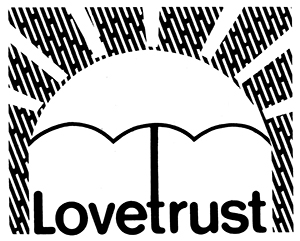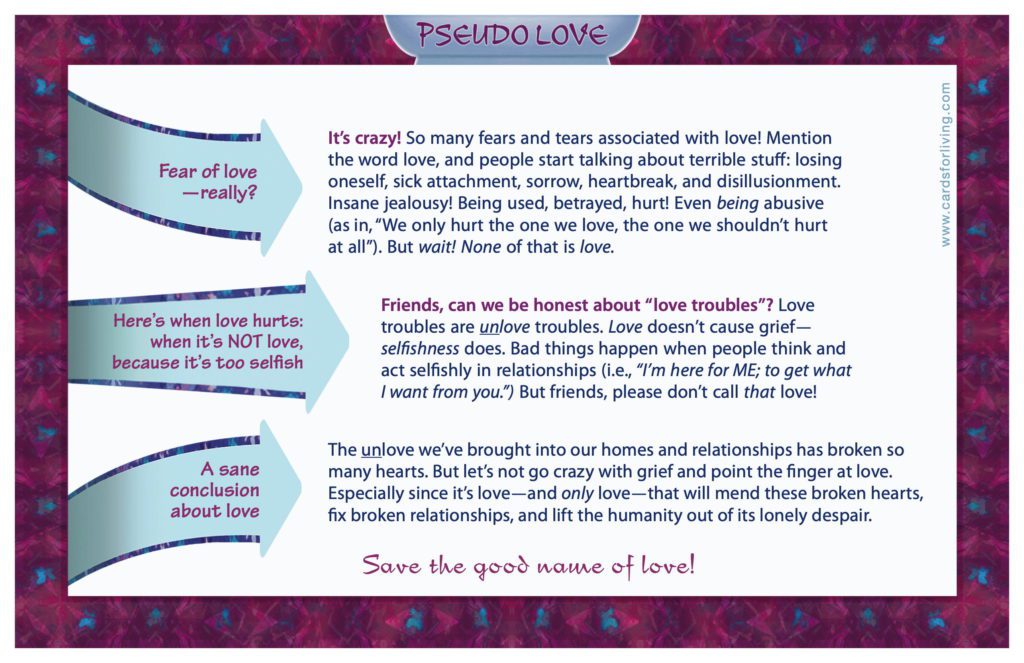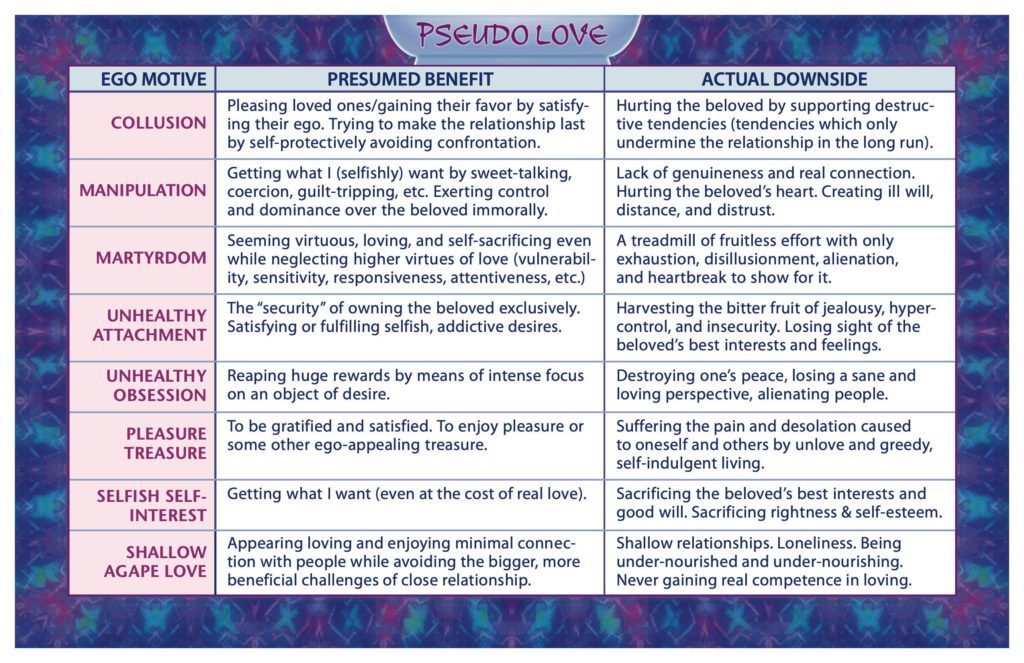

It’s your happy day when you discover that your house is infested with termites.
Wait a minute! What’s so happy about that? Well, it’s truly fortunate to find out about a serious but hidden problem that is threatening the very foundations of your home, so you can promptly take care of it. And it’s the same if you’re unknowingly doing something that’s bad for your love relationships—like collusion. You need to know, so you can correct the problem.
It goes without saying that none of us want to hurt the people we love. Just the opposite! We want the best for them; we want to contribute to making life good for them. That’s what love is: The honest attempt to make someone happy. Being sincerely, happily, wholeheartedly oriented to their needs, their welfare, their furtherance, their happiness.
So how do we go wrong? How do we end up undermining our loved ones while thinking we’re supporting them? It happens because we have conflicting intentions. All of us are motivated both by real caring and by self-interest, but most of us are not paying attention to the proportions between them. We’re not on the lookout for crucial shifts in our intentions that warp our love into unlove.
When we sincerely want to do what’s best for our beloveds, we will sometimes have to do things that are inconvenient, that create a problem for us, that conflict with our plans or preferences, or that make us unpopular with them. To truly and consistently love we must be prepared to set our own self-interest aside. And to truly support someone we love, we must unselfishly uphold and further their best interests—even if it costs us.
We need to become aware of this inner conflict and which side is winning in any moment, because love and self-interest are opposites. When self-interest wins, love loses.
We run into our inner conflict between love and self-interest when a loved one is doing something negative or self-destructive. If we avoid mentioning the problem and fail to support them in addressing it, we become an accomplice in their self-destruction. That’s collusion, masquerading as support. Collusion is doing things that actually undermine our friends and beloveds in the name of supporting them.
For example, if you have a friend who’s an alcoholic, what would you give them for their birthday: an expensive bottle of whiskey, or a trip to rehab? They’re sure to appreciate the whiskey, and enjoy it as long as it lasts; meanwhile, they may openly resent you for even mentioning rehab. If you want to be popular with them, you’ll cater to their addiction—but that’s selling them down the river for your own selfish reasons.
Refusing to collude with your friend’s self-destructive habit may precipitate a crisis in the relationship. But colluding with it only defers pain and sorrow into the future. You’ll both pay the price in the end, when the friend’s alcoholism undermines the relationship and their own health.
Not all forms of collusion are that obvious. A parent who doesn’t require their children to complete their homework. A friend who witnesses their friend acting cruel to someone else and says nothing. A woman who silently suffers coarse, insensitive lovemaking from her lover and pretends to like it. All of these people are withholding controversial messages that would benefit the beloved. Why? For selfish reasons: to avoid conflict and confrontation, to be popular, to play it safe.
Friends, collusion is not support. It’s more like sabotage in the good name of being “supportive.” It’s simply being self-protective at our loved one’s expense.
Let’s call a spade a spade. That’s not love.
Collusion is just one way that unlove masquerades as love. To learn more about the difference between love and unlove and other common examples, download or print the Pseudo Love Card from the Cards for Living website.
Love,
Your friends at LoveTrust



